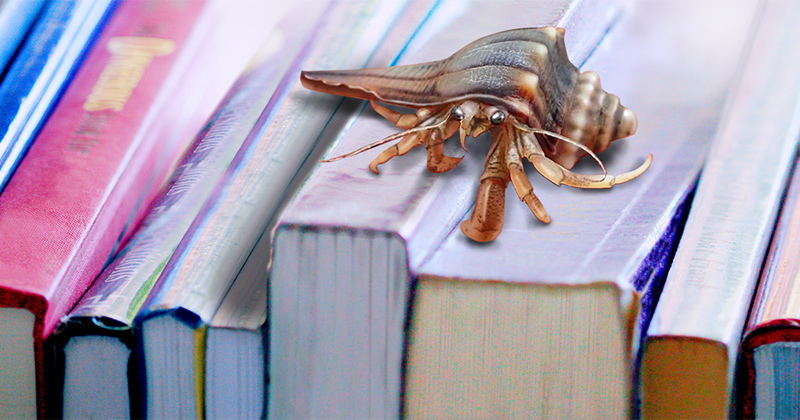


Ocean education
Photo illustration by Tammy Beeson November 04, 2022
Delaware Sea Grant brings oceans of possibilities to Delaware libraries
When David Christopher was contacted by representatives from the Delaware library system who were interested in having him present and run programs geared towards their summer reading theme — Oceans of Possibilities — he didn’t hesitate to say yes.
“In my background, I’ve done library programs for decades at the National Aquarium,” said Christopher, marine education specialist for Delaware Sea Grant (DESG), which is housed within the University of Delaware’s College of Earth, Oceans and Environment. “So it was something I was used to, and it was a great opportunity and a great theme for us at Delaware Sea Grant to tap into.”
In designing the presentations, Christopher was aided by Rex Schiff, a summer intern with DESG, and created a 45-minute oceanography program for the libraries geared towards children in grades four through eight.
Christopher said that he wanted to design the program for that specific age group because it’s a great age for getting people interested in science.
“When you’re transitioning into middle school, it’s important to get people excited about science and exposed to different science avenues they can explore in middle and high school,” said Christopher.
The program started off with a general overview of oceanography, talking about the history of oceanography, some of the discoveries of oceanography and also why exploring the ocean is important.
It then delved into the four branches of oceanography: biological oceanography, geologic oceanography, physical oceanography and chemical oceanography.
Christopher had a hands-on activity planned for each and the students broke up into small groups to learn about each branch.
For biological oceanography, he brought a hermit crab and a whelk in aquariums and the students had to figure out the similarities and differences between the animals.
The geological oceanography table had sonar boxes, where students stuck different measuring sticks into a box to determine what the features were of the floor of the “ocean” — such as an underwater volcano or an underwater canyon. This activity mimicked what it is like for a boat on the surface of the water to use sonar to map and determine the unseen geological features below on the ocean floor.
He also had a small wave tank for the kids to make observations about waves for physical oceanography, and for chemical oceanography, they tested the salinity of three different types of water.
Once the students visited every station, they came back in a big group and talked about what they learned, what they thought, and asked questions.
In addition to the specialized oceanography program, a few libraries asked Christopher to do a general animal adaptation program, a program where Christopher talked about different animals and brought objects like lobster claws, whelks and hermit crabs for the students to see in person.
Overall, Christopher taught more than 300 people throughout the summer in libraries in all three counties, including towns such as Bear, Lewes, Newark, Dover and Brandywine Hundred, among others.
“The biggest turnout was 86 students when I did an animal adaptation program on the Green in Dover,” said Christopher. “My smallest group was one student in a marine career program I ran, but they wanted to be an oceanographer when they grew up so it was great to talk with them one-on-one about those possibilities.”
The students seemed to respond to the hands-on activities, and it showed Christopher how there are a lot of people interested in ocean and marine science and are looking for that kind of content.
“I’m new to the state so it was great for me to travel around the state and see different libraries and different places,” said Christopher, who recently moved to Delaware. “This comes from not being a Delawarean, we have amazing libraries in this state. Every library was really cool and I was excited to be there and every library was helpful. I am just so impressed with the library system and how they work with their communities. I was really pleased to be out there and have the chance to visit all of these libraries.”
Contact Us
Have a UDaily story idea?
Contact us at ocm@udel.edu
Members of the press
Contact us at 302-831-NEWS or visit the Media Relations website

